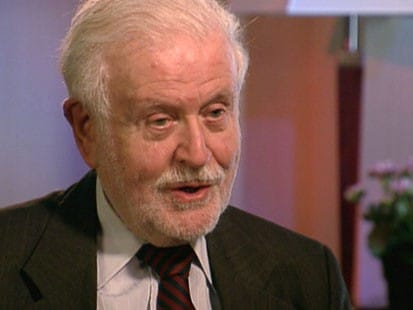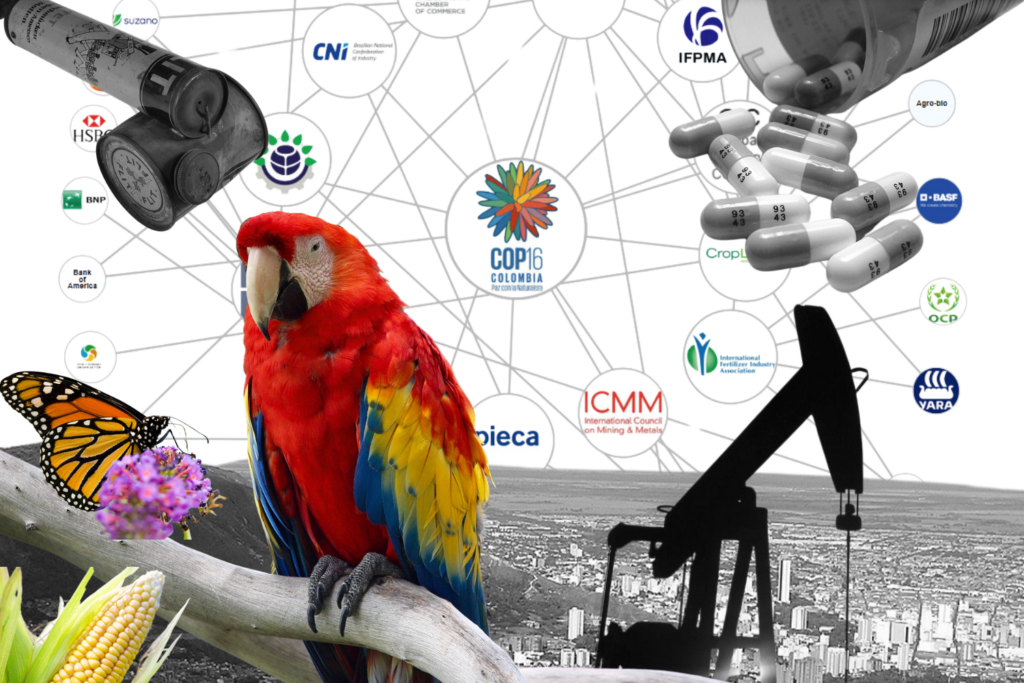DeSmog UK’s history series examines how the tobacco industry’s PR tactics proved inspirational for the army of climate change deniers.
Dr Fred Singer and his sceptic Science and Environmental Policy Project (SEPP) would become an increasingly important platoon in the army assembling against climate science.
Along with the late Dr Frederick Seitz – a founder of the Marshall Institute – the SEPP would use PR tactics developed by the tobacco industry to question and undermine climate science.
Seitz, for example, accused the UN Intergovernmental Panel on Climate Change (IPCC) of producing scientific summaries “exaggerating risk… solely – we suspect – to satisfy an ideological objective of aggressively constraining the use of energy.”
Meanwhile, Singer (pictured) was busy raising money. He proposed to one oil industry PR firm that they should support a $95,000 project. This would include lectures and publications designed to attack the IPCC and help “stem the tide towards ever more onerous controls on energy use.”
Shortly after, Singer testified at the US House of Representatives’ Energy and Commerce Committee’s Subcommittee on Oversight and Investigations that “there is no scientific consensus on ozone depletion or its consequences.”
Industry-Funded
Singer also appeared on the popular American programme Nightline to tell viewers that the climate change science had been exaggerated, but when pressed he was forced to admit that he had in the past received funding from oil companies Exxon, Shell and ARCO.
Ross Gelbspan, the American investigative journalist who first exposed Singer’s oil funding, at the time raised serious concerns about the “profound conflict of interest” which arises when a scientist claiming climate change is not happening is funded by Exxon.
He asked: “What would happen if the industry-funded ‘greenhouse skeptics’ just happened to stumble on a clue that the warming of the planet is, indeed, intensifying – and that the findings of the IPCC have validity? Would they be willing to change the direction of their research and, in the process, risk of cutting off their industry funding?”
But Singer used the SEPP not only to attack climate science but also to aggressively attack the latest research showing that even passive smoking could cause cancer, leading to millions of painful deaths – all the while being paid directly by the tobacco companies.
Tobacco Benefits
The eminent scientist drafted a report called The EPA and the Science of Environmental Tobacco Smoke, which was commissioned and funded by the industry’s Tobacco Institute via the Alexis de Tocqueville Institution.
A private memo sent to Walter Woodson, senior vice president at the Tobacco Institute, provided Singer’s curriculum vitae and suggested the industry lobby pay $20,000 for support in challenging the impacts of environmental tobacco smoke. A further internal document shows that the Tobacco Institute forwarded the cash to the Alexis de Tocqueville Institute.
Singer also benefited less directly from the millions of dollars the tobacco firms were providing to American think tanks.
In January 1995, he moved into the offices of the Atlas Foundation, which had been set up by the libertarian think tank founder Antony Fisher in his tireless crusade against totalitarianism, the state and regulations.
Atlas posted on its website: “For those who believe public policy should be based on sound science, Dr. Singer offers a wealth of information, credibility and encouragement.”
The think tank was paid $475,000 by Philip Morris, the tobacco giant engaged in a fierce legal and public relations battle to deny the scientific consensus on tobacco smoke.
While Singer was just one pawn in a much bigger game being executed by the tobacco industry, it did not stop him learning from their public relations strategies. Later, he would apply their tactics to the task of undermining the public trust in climate science.
‘Sound Science’
In June 1994, a year prior to Singer moving to Atlas, Philip Morris began working with the public relations firm APCO Associates to launch The Advancement of Sound Science Coalition (TASSC). This coalition falsely claimed to be a “grassroots” organisation advocating “sound science” in policy decision making.
Burson Marsteller – the same PR company advising the oil industry – was hired to organise and promote seminars as part of what they called the Sound Science Project. The public relations experts told the tobacco company that funding would have to be found from other interest groups if the project was to have any chance of succeeding in influencing scientists.

Photo: Kadaltik via Flickr
“It is absolutely vital that we succeed in getting funding of the seminar from a broader group of sponsors than just PM [Philip Morris],” stated one secret memo. “Otherwise we would not be able to ensure the credibility of the seminar in relation to the scientists.”
“And if the seminar has not got that credibility, then outcomes of the meeting will not have great value,” it continued. This advice would prove hugely significant.
Corporate America
The tobacco companies took it on board. They began to reach out to other corporate giants whose profits were threatened by scientific research proving their products were dangerous to public health and the natural environment.
Corporate America began to resist the calls for regulations, and in the process discovered the tremendous value of free market ideology with its distrust of the state, as promoted by Friedrich Hayek, John Blundell, Fisher, the Koch brothers, and so on.
The arguments presented by tobacco to protect its financial interests would echo the sincere beliefs of the libertarians.
“Science should never be corrupted to achieve political ends,” they planned to tell the public. “Economic growth cannot afford to be held hostage to paternalistic, overregulation.”
Big Tobacco spent $100,000 setting up the Restoring Integrity to Science Coalition “to educate the media, public officials and the public about the dangers of ‘junk science’.”
The industry would also “create a shadow version of the US Competitive Council… It would promote the need to balance environmental regulation with economic growth.”
British Regulations
Across the pond, the tobacco industry in Britain found some firm friends at free market think tank, the Institute of Economic Affairs (IEA). The pipe-smoking Lord Harris of High Cross had formed FOREST to directly challenge the government’s attempt to set increasingly stringent regulations to reduce smoking in the interests of public health.
The measures being suggested were a ban on advertising and also the curtailing of smoking in offices, pubs and public spaces. FOREST argued that such regulations would undermine the economy, close down businesses and, most importantly, were a totalitarian infringement on the rights of the private individual to choose to smoke if they so wish.
FOREST published Through the Smokescreen of “Science”: The Dangers of Politically Corrupted Science for Democratic Public Policy in December 1994.
Harris also chaired the advisory council with his IEA colleague professor David Myddelton, the popular author and journalist Auberon Waugh, and the soon-to-be disgraced MP Neil Hamilton.
An Obvious Partner
The IEA, with its long history of receiving funding from tobacco, and institutional ties to the Atlas Foundation in the US, would be an obvious partner in any initiative to bring the Sound Science initiative to Britain.
Tom Hockaday from APCO sent an internal memo to Matt Winokur at Philip Morris in March 1994, advising that a “TASSC-like group” should also be formed in Europe to counter the formulation of regulations of smoking.
Winokur confirmed that he knew Roger Bate at the IEA’s Environment Unit, but claimed that after almost 20 years he could not remember he worked with him to establish the European Science and Environment Forum during the ‘90s.
He told me: “This sounds like a bad line from a movie but I really have no recollection.”
Next time, DeSmog UK’s epic history series will focus on one humble pamphlet that would prove critical in the relentless critique of climate science.
Photo: DeSmogBlog
Subscribe to our newsletter
Stay up to date with DeSmog news and alerts







